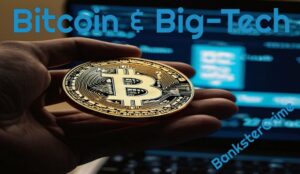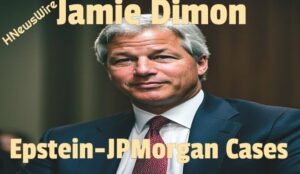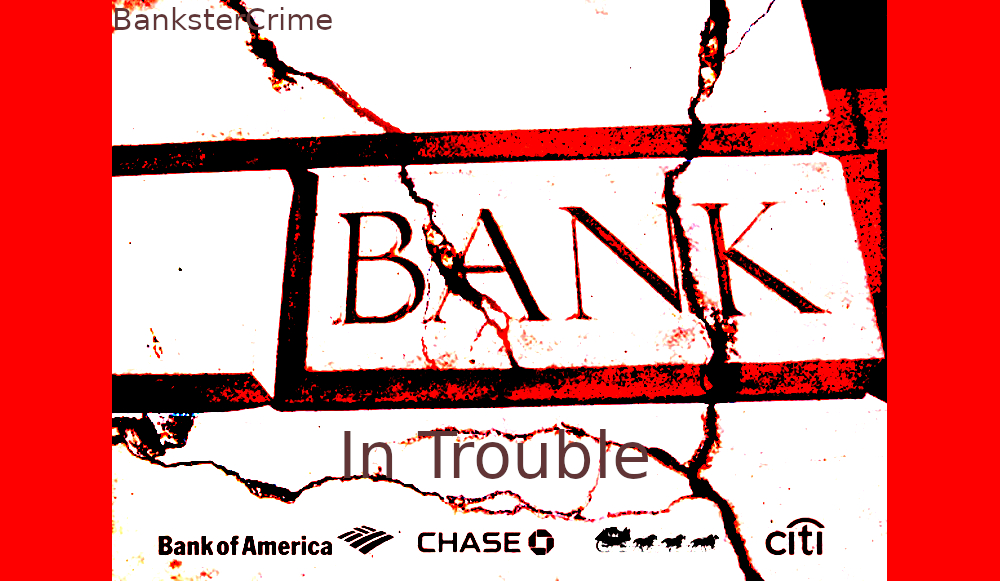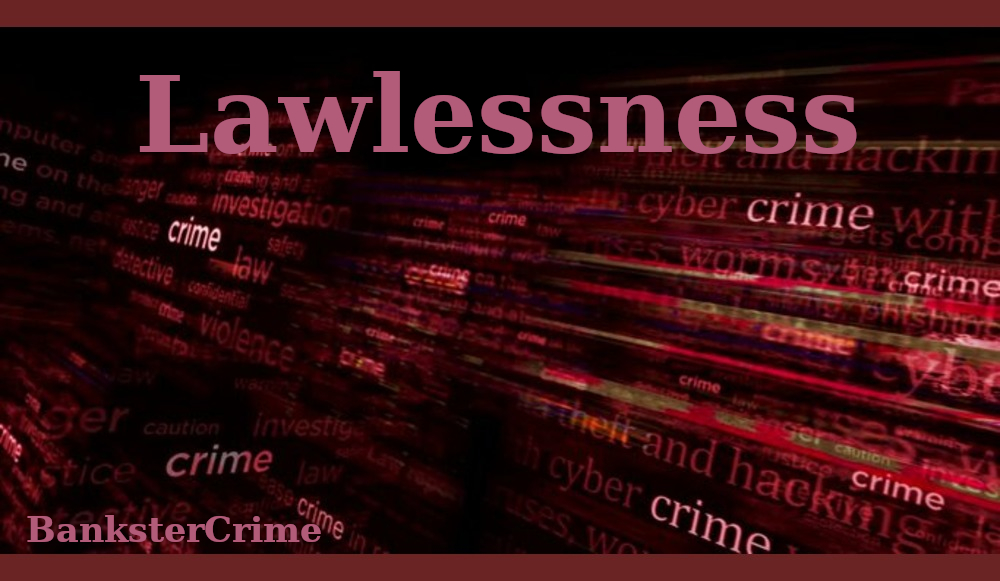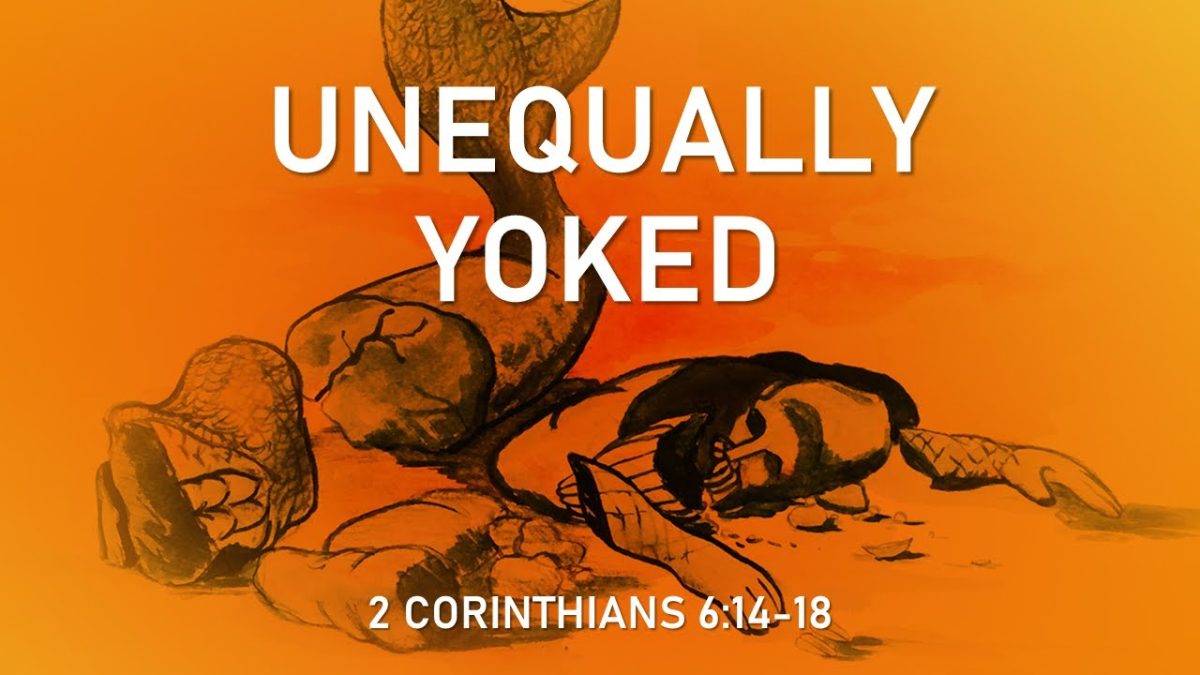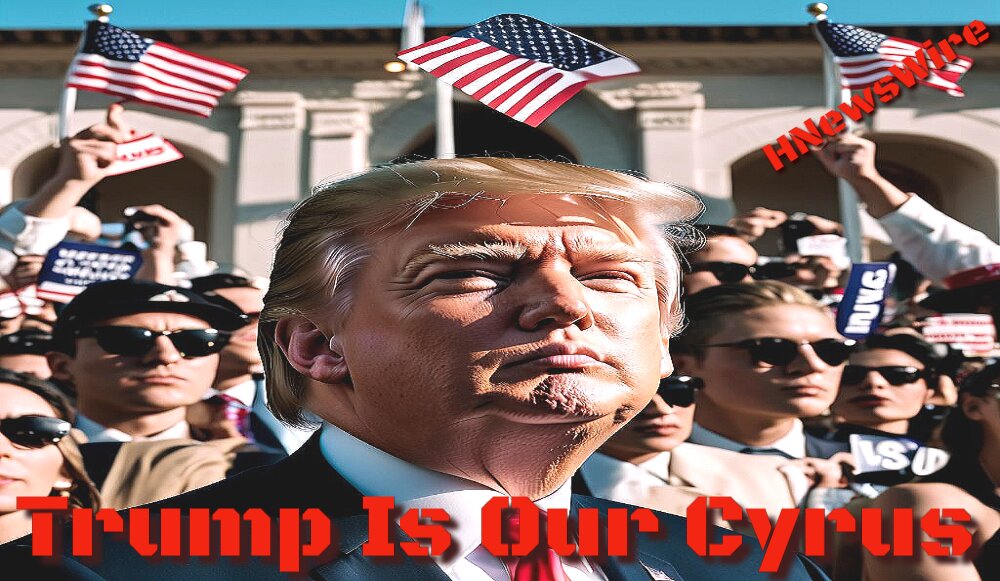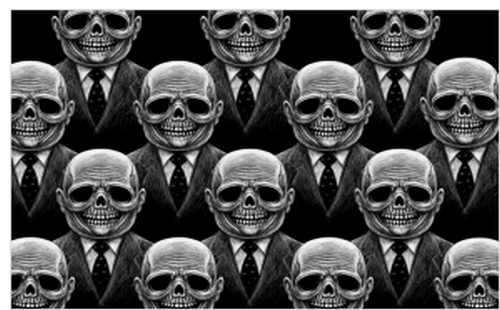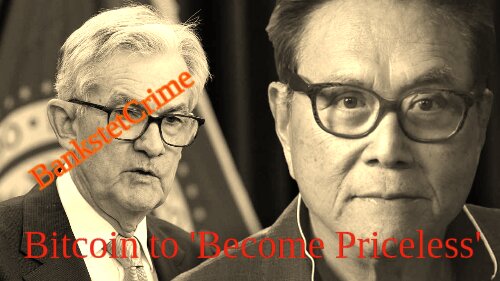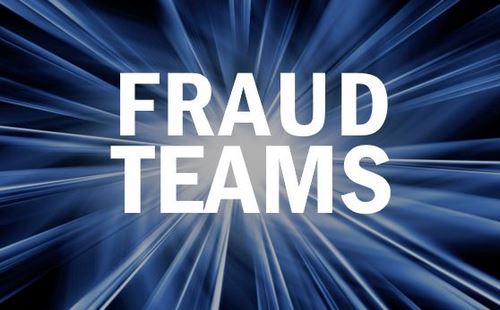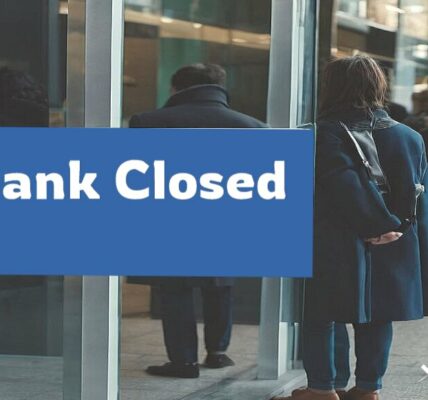Banks in Trouble: The 25 Largest U.S. Banks Are Seeing the Largest Fall in Deposits in 38 Years With No Signs of Letting Up

BanksterCrime:
By Pam Martens and Russ Martens: August 7, 2023 ~
Deposits at the 25-largest domestically-chartered U.S. commercial banks peaked at $11.680 trillion on April 13, 2022, according to the updated H.8 data maintained at the Federal Reserve Economic Database (FRED). As of the most current H.8 data for the week ending on Wednesday, July 26, 2023, deposits stood at $10.709 trillion at those 25 commercial banks, a dollar decline of $970 billion and a percentage decline of 8.3 percent.
Equally noteworthy, the decline shows no signs of letting up. According to the FRED data, between July 5 and the most current reading on July 26, the 25 largest U.S. banks shed $174 billion in deposits.
Despite all of the misleading news reports about depositors seeking out the perceived safety of the largest banks since the banking crisis in the spring, it’s actually been the smaller banks that have staged a comeback on growing deposits since the week of April 26. (See chart above.)
As of March 31 of this year, according to FDIC data, there were a total of 4,096 commercial banks in the U.S., meaning that if you segregate the 25 largest banks, that leaves 4,071 falling into the H.8 category of small, domestically chartered commercial banks.
This breakdown does not give the American people a quick pulse beat on the dangers lurking in the U.S. banking system – a system that imploded in 2008 and was on its way to imploding again this spring until the Fed stepped in with another bailout program. In the span of seven weeks this spring, running from March 10 to May 1, the second, third, and fourth largest bank failures in U.S. history occurred. In order of size, those were: First Republic Bank (May 1), Silicon Valley Bank (March 10) and Signature Bank (March 12). The largest bank failure in U.S. history, Washington Mutual, occurred in 2008 during the financial crisis.
Because there are only four domestically-chartered commercial banks in the U.S. with more than $1 trillion in deposits – JPMorgan Chase, Bank of America, Wells Fargo, and Citigroup’s Citibank – it behooves Americans to closely monitor what is happening at these four banks, which hold such a highly concentrated share of the banking system’s deposits and assets. That is especially true given that one of those four banks, Citigroup, blew itself up in 2008 and received the largest Fed and Treasury bailout in U.S. banking history.
Given this history, it would make far more sense for the Fed to provide this deposit data in the following breakdowns: deposits at mega banks with more than $1 trillion in deposits; deposits at large banks with $200 billion to $1 trillion in deposits; and deposits at small and medium banks with less than $200 billion in deposits.
Monitoring what is going on at these four behemoth banks should make nightly network news and the front pages of newspapers – but rarely does. This lack of media attention allows a five-count felon bank like JPMorgan Chase to continue its serial crimes while simultaneously getting bigger. JPMorgan Chase was allowed by federal regulators to gobble up the failed First Republic Bank this year, despite the fact that JPMorgan Chase is currently being credibly charged in federal court by the Attorney General of the U.S. Virgin Islands with “actively participating” in Jeffrey Epstein’s sex-trafficking of underage girls for more than a decade.
What could be more damaging to a mom and pop bank’s reputation, with more than 5,000 Chase Bank branches dotting the landscape across America, than credible charges from the Attorney General of the U.S. Virgin Islands that JPMorgan Chase sold out young girls as sex slaves for more than a decade in order to get wealthy client referrals from Jeffrey Epstein?
The Eleventh Circuit Court of Appeals called what the U.S. Department of Justice allowed to happen to these girls “beyond scandalous” and “a national disgrace.” And yet, the U.S. Department of Justice has left it to the Virgin Islands to bring civil charges while it remains missing in action on bringing criminal charges against JPMorgan Chase.
Allowing a bank with this serial history of outrageous crimes to get even bigger and more dangerous did not escape the attention of Senator Elizabeth Warren. On May 17, Warren sent a letter to federal regulators pointing out the problems with the JPMorgan Chase/First Republic deal. Warren wrote:
“…it resulted in a $13 billion cost to the Federal Deposit Insurance Fund – which will ultimately be passed on to ordinary bank consumers across the country – and made JPMorgan, the nation’s biggest bank, even bigger. JPMorgan will also record a $2.6 billion gain from the deal…”
Warren’s letter also noted the following:
“Under the Riegle-Neal Interstate Banking and Branching Efficiency Act of 1994, a bank holding company may not consummate a merger that would result in the bank holding more than 10% of the nation’s total deposits – a standard that JPMorgan already exceeds. However, because Riegle-Neal includes an exception for failed banks, the OCC has indicated that it did not need to take any action because the statute automatically provides a waiver. Separately, this merger required approval under the Bank Merger Act, which was granted by OCC. In its May 1 letter approving JPMorgan’s acquisition of First Republic, the OCC concluded that ‘The Transaction does not increase risk to the stability of the United States banking or financial system as it facilitates the orderly resolution of an insured depository institution in default,’ though it provides little detail about its analysis.”
There is a very compelling argument to be made that the JPMorgan Chase/First Republic Bank combination did, indeed, “increase risk to the stability of the United States banking or financial system,” because federal regulators had already assessed JPMorgan Chase to be the nation’s riskiest bank. (See Federal Data Show JPMorgan Chase Is, By Far, the Riskiest Bank in the U.S.)
Bitcoin Vs Marx: Two Competing Geopolitical Domino-Theories
by Tyler Durden Authored by Robert Malka via BitcoinMagazine.com, Marxism and Bitcoin have one thing in common, the idea that…
![]()
Three Branches of U.S. Government Have Kept the Secrets of Jeffrey Epstein’s Money Man, Leslie Wexner, Locked Up Tight, Now the House of Cards Fall!
By Pam Martens and Russ Martens: January 12, 2024 ~ Leslie Wexner (left); Jack Kessler (right). Both men were involved in the…
![]()
“It’s the Old DNA Basically Bashing the New DNA,Slow-Walking Of Spot Bitcoin ETF Approval,Trouble is Here
by Tyler Durden AMs the dust settles on the SEC’s begrudging approval of spot bitcoin ETFs – and trading begins…
![]()
New York State Has Turned Over a Vast Amount of Its Financial Affairs to 5-Count Felon JPMorgan Chase
By Pam Martens and Russ Martens New York State Comptroller, Thomas DiNapoli There’s only one thing more dangerous than the largest bank…
![]()
Bitcoin & Big-Tech Burst Higher Amid Bloodbath In Boeing & Black Gold
by Tyler Durden A quiet macro day (though we did see NYFRB inflation expectations plunge!), but some ‘good’ news from…
![]()
JPMorgan and Jeffrey Epstein Explained: Twisted Banking Taps into Sex Fiend’s Network
By Pam Martens and Russ Martens: Jamie Dimon, Chairman and CEO of JPMorgan Chase According to the complaint filed by lawyers for…
![]()
Satan Soldiers Will Stop at Nothing: Inside Wall Street’s Plan to Start Trading America’s Natural Resources
By making money off of the right to own both public and private land in the United States, Wall Street…
![]()
Bill Dudley, Former Kingpin of Darkness at the New York Fed, Now Urges Transparency at the Fed
By Pam Martens and Russ Martens: William C. (Bill) Dudley, Former President of the Federal Reserve Bank of New York William (Bill)…
![]()
Mainstream Media Is Avoiding the Big Story on Jeffrey Epstein and Sealed Court Documents
I Didn’t Have Sex With That Woman Giuffre v. Maxwell (1:15-cv-07433)District Court, S.D. New York https://www.courtlistener.com/docket/4355835/giuffre-v-maxwell/ he Jeffrey Epstein files…
![]()
Federal Agency Study Contradicts Fed Chair: Finds Banking System Is Ripe for Another Crisis and Remains “Fragile and Uncertain”
By Pam Martens and Russ Martens: Following the second, third and fourth largest bank failures in U.S. history in the spring of…
![]()
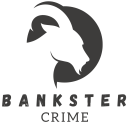
Beef in Bulk: Half, Quarter, or Eighth Cow Shipped to Your Door Anywhere within Texas Only
We do not mRNA vaccinate our cattle, nor will we ever!
Grass Fed, Grass Finished Beef!
Here is a discount code for HNewsWire readers to get 20 percent off first order:
HNEWS20
From Our Ranch to Your Table
Sources: WallStreet BanksterCrime
Revelation: A Blueprint for the Great Tribulation


A Watchman Is Awakened


Will Putin Fulfill Biblical Prophecy and Attack Israel?
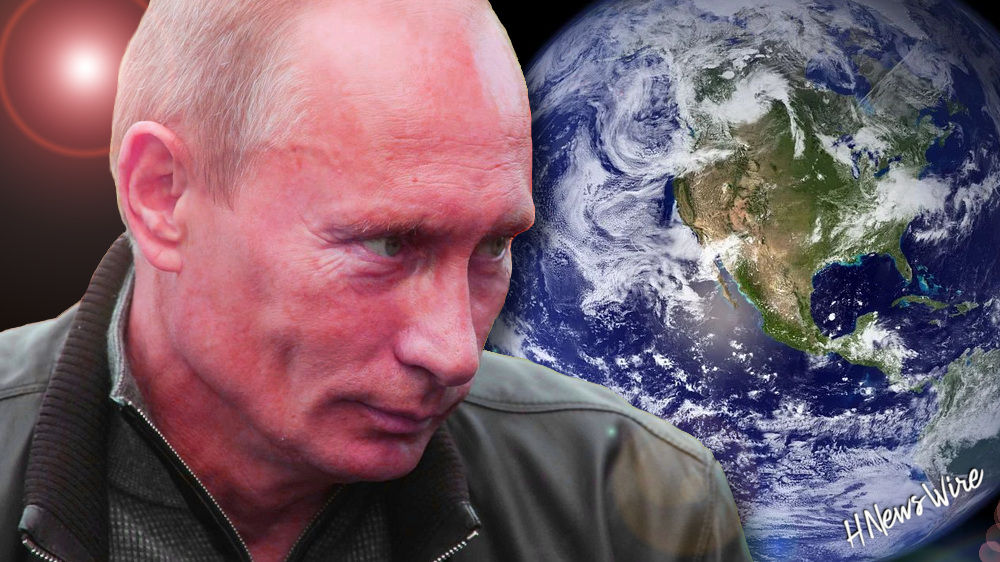
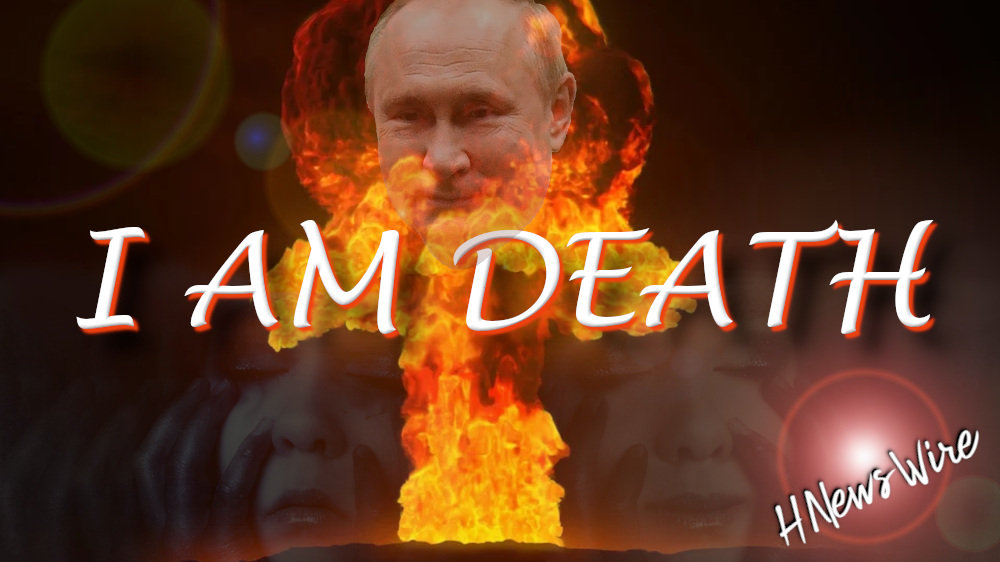
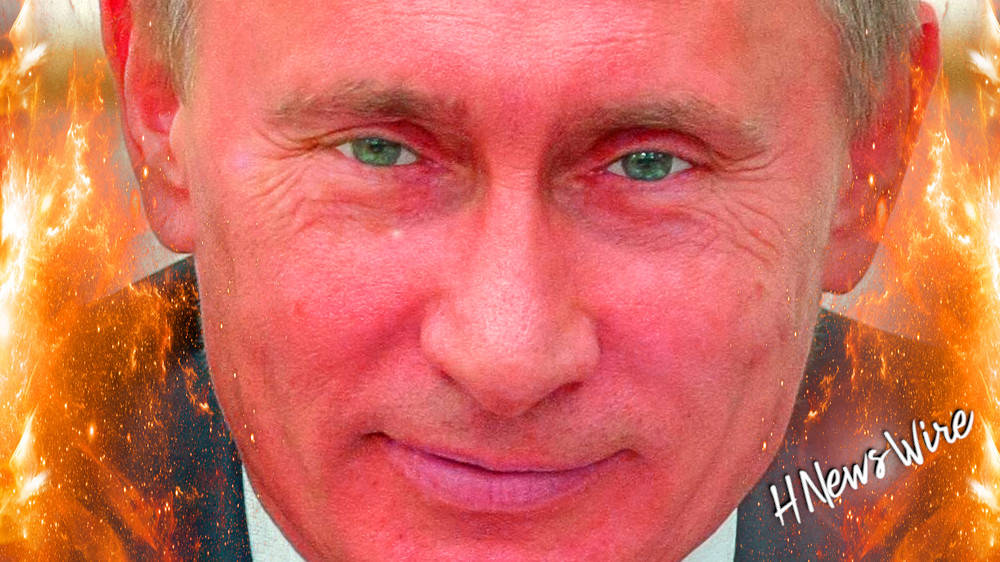
Newsletter
Orphans

Editor's Bio






